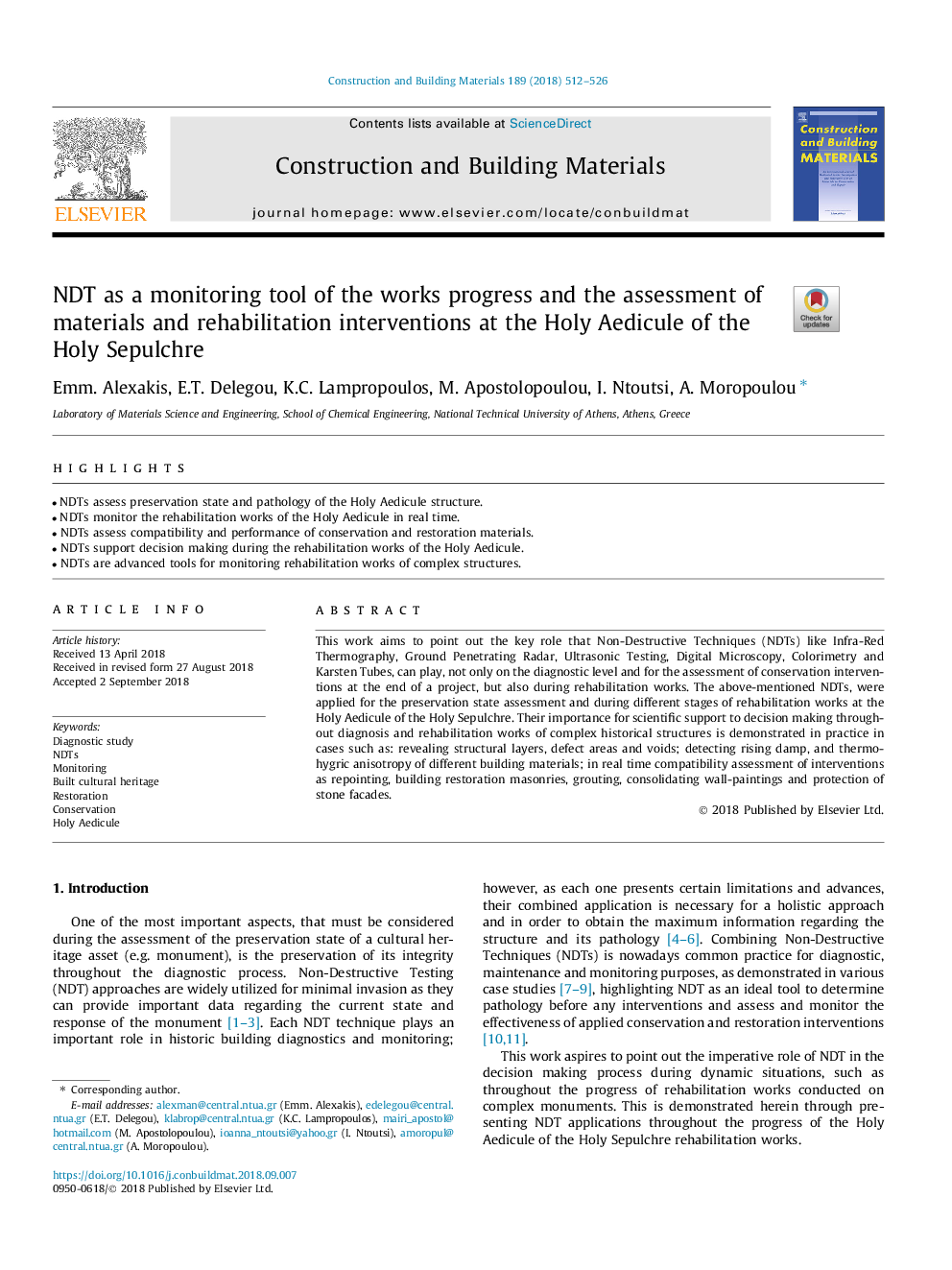| Article ID | Journal | Published Year | Pages | File Type |
|---|---|---|---|---|
| 10145661 | Construction and Building Materials | 2018 | 15 Pages |
Abstract
This work aims to point out the key role that Non-Destructive Techniques (NDTs) like Infra-Red Thermography, Ground Penetrating Radar, Ultrasonic Testing, Digital Microscopy, Colorimetry and Karsten Tubes, can play, not only on the diagnostic level and for the assessment of conservation interventions at the end of a project, but also during rehabilitation works. The above-mentioned NDTs, were applied for the preservation state assessment and during different stages of rehabilitation works at the Holy Aedicule of the Holy Sepulchre. Their importance for scientific support to decision making throughout diagnosis and rehabilitation works of complex historical structures is demonstrated in practice in cases such as: revealing structural layers, defect areas and voids; detecting rising damp, and thermo-hygric anisotropy of different building materials; in real time compatibility assessment of interventions as repointing, building restoration masonries, grouting, consolidating wall-paintings and protection of stone facades.
Related Topics
Physical Sciences and Engineering
Engineering
Civil and Structural Engineering
Authors
Emm. Alexakis, E.T. Delegou, K.C. Lampropoulos, M. Apostolopoulou, I. Ntoutsi, A. Moropoulou,
